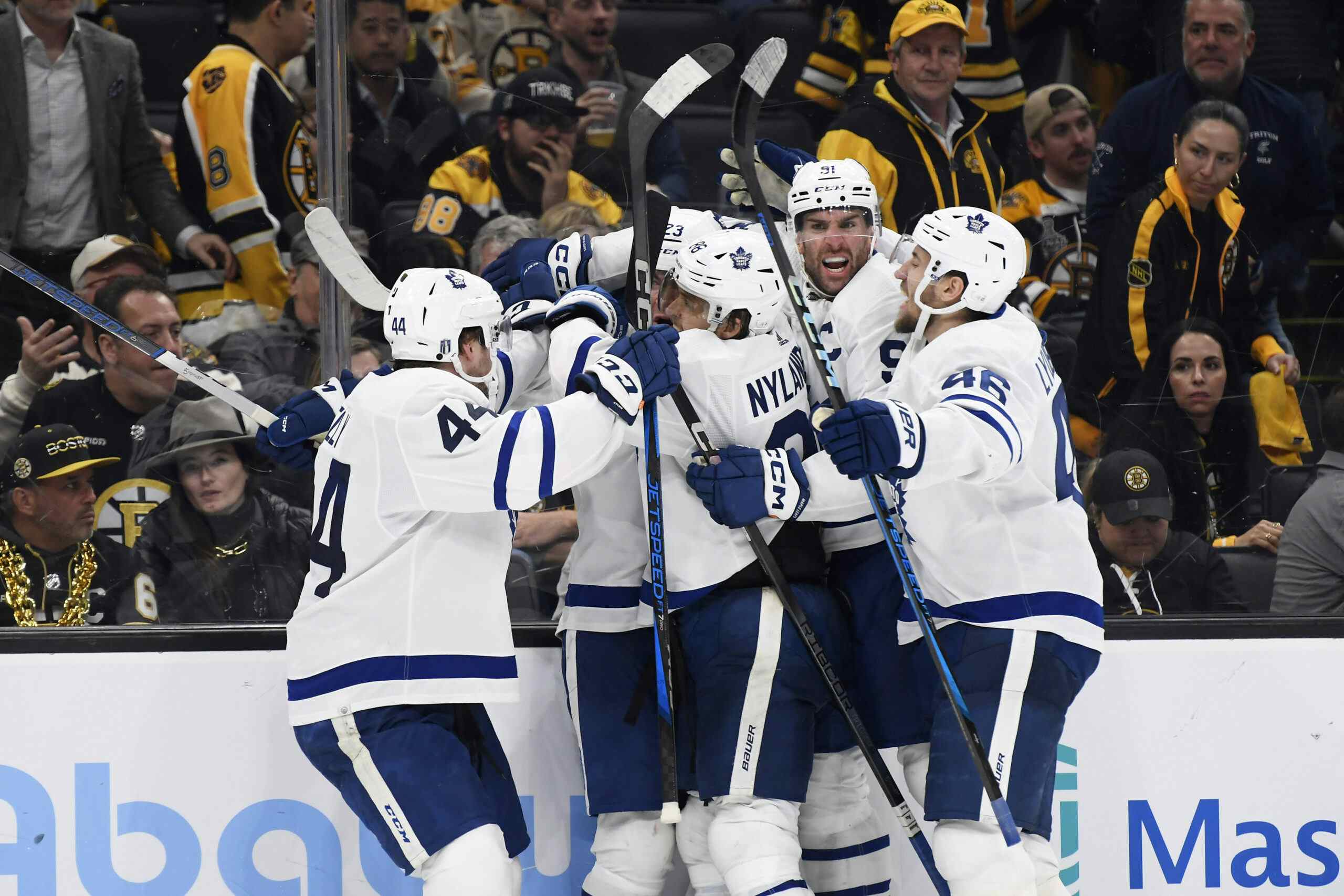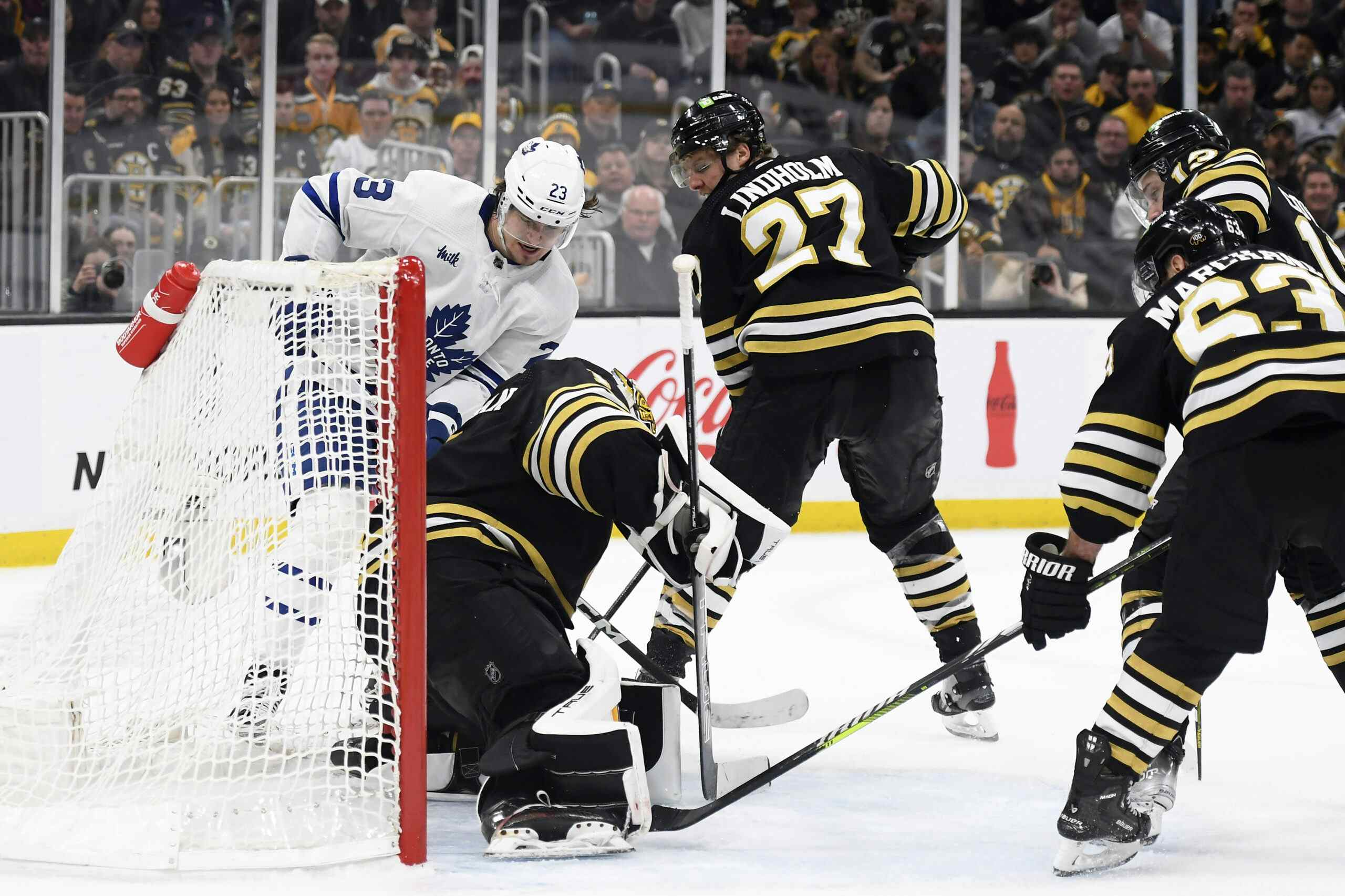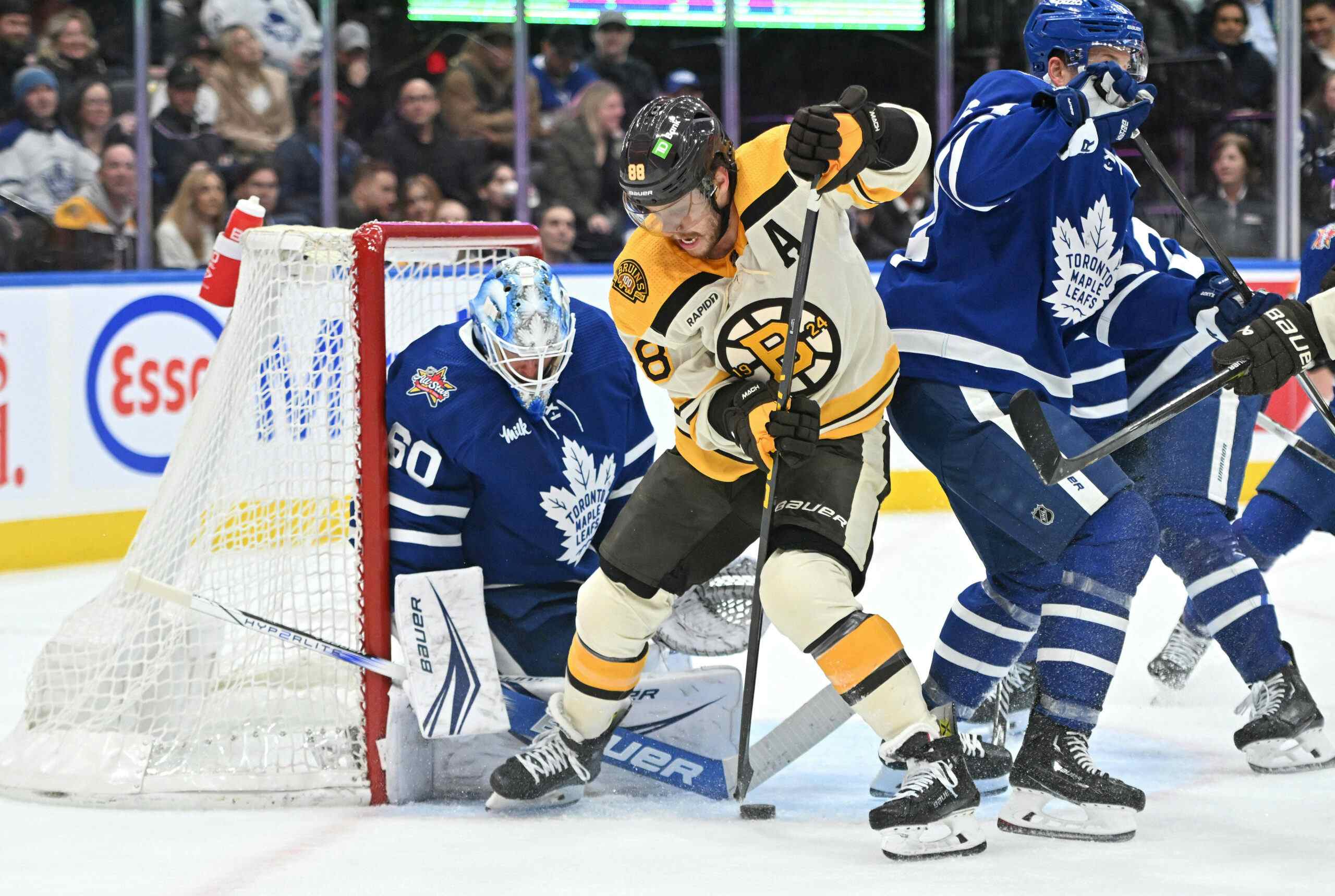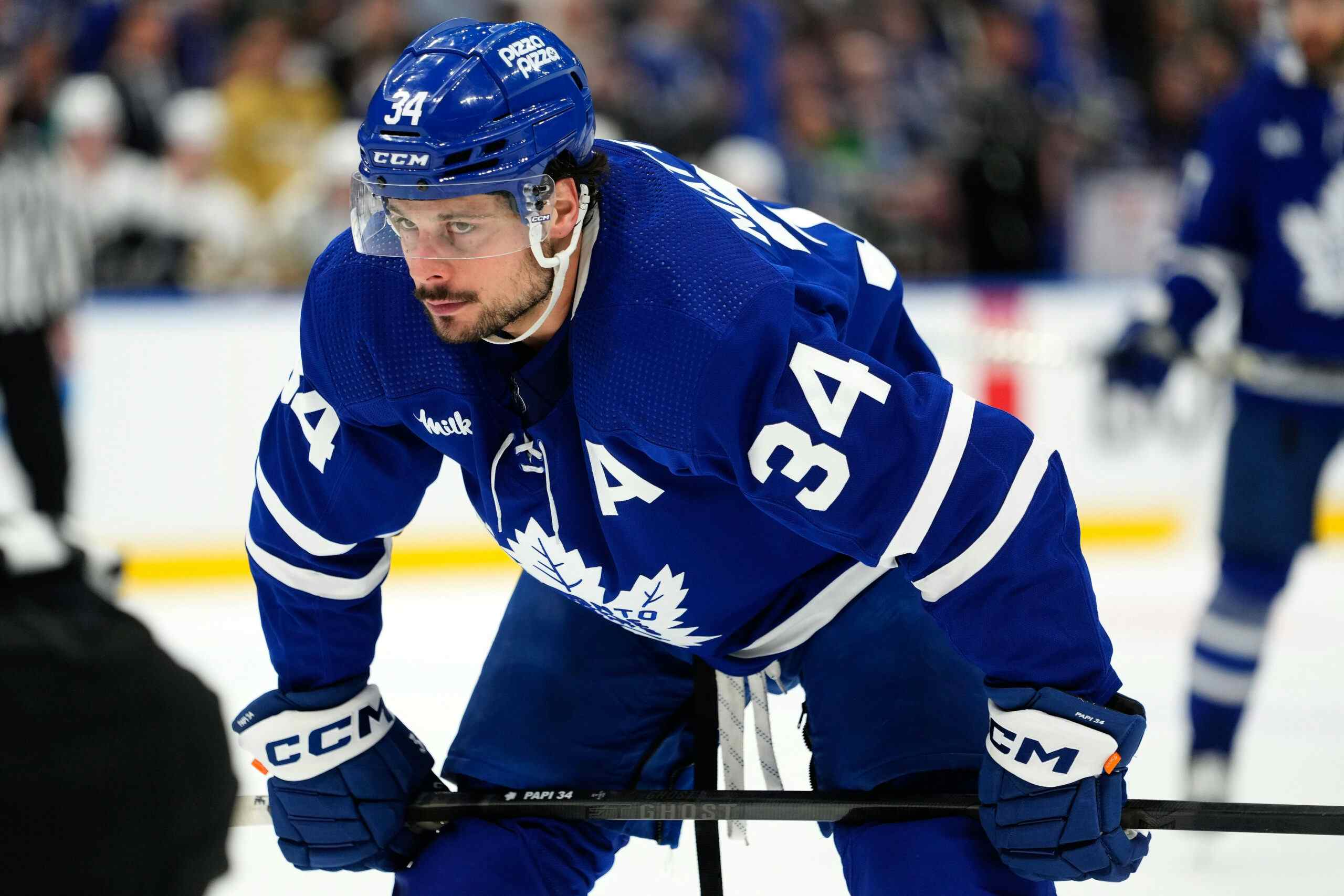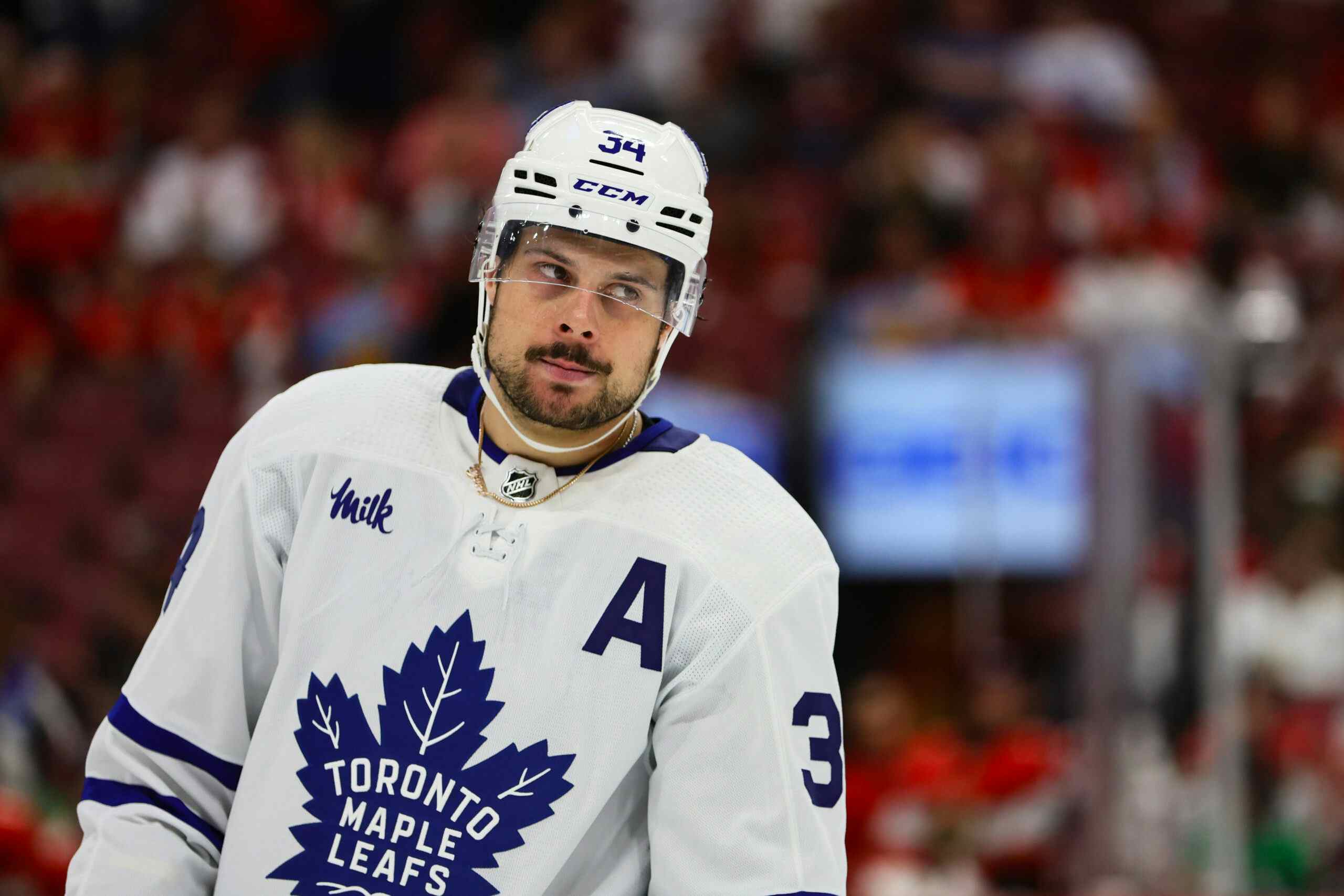Carlyle Tries For Post-Leaf Coaching Success Few Have Found
By Greg Brady
7 years agoLook, it was bound to happen. You know it and I know it — Randy Carlyle just wasn’t going out like that. Although it would appear to many that Ron Wilson DID go out, um, “like that”; meaning being a somewhat disgraced head coach of an under-nourished yet strangely bloated Toronto Maple Leafs team that seemed to have hit the skids, with nowhere to sink in the standings but down.
Now, often, coaches are fired in the hopes that the team in question will rebound, show new signs of life, and ascend to new heights. The 2014-15 Toronto Maple Leafs squad will be utilized by hockey historians for decades to come as a team that saw fit not to come together and be all in and push for a postseason spot, quite on the contrary, but more on that in a bit.
It’s been 18 months since the Maple Leafs unceremoniously dismissed Carlyle as their head coach, and the seeds became planted to look much, much different behind the bench and on the ice. Today, Carlyle finds his way back to the team that fired him a couple of years earlier on November 30th, 2011 (after a rough loss to the Maple Leafs at home). This allowed the Leafs to swoop up and make his severance payments somewhat smaller back on March 2nd, 2012, while firing Ron Wilson, another former (Mighty) Ducks head coach.
But what happens when former Maple Leafs coaches head back into the job market? We know with players (yes, Phil counts!) that it can be quite a quick transition from former Maple Leaf to Stanley Cup champion, but do head coaches ever find themselves that close to glory? We already know coaches who win the Stanley Cup already have no problem signing up for tenures with the Maple Leafs as Mike Babcock did last summer, and as Carlyle did. So let’s rewind back a couple of decades and see who achieved what after they cleared out either their Bay Street or Carlton Street (before 1999) offices, with only a couple staplers and desk lamps gone missing.
Ron Wilson — 2008-2012
Just imagine, Ron Wilson coached the Leafs for 310 regular season games and ZERO playoff games. Now, his goaltenders included Vesa Toskala, Justin Pogge, a soon-to-be-retired Curtis Joseph, James Reimer, Martin Gerber, a wonky J.S. Giguere, Ben Scrivens, and Jonas Gustavsson. Think he should have made the playoffs and won a bunch of games in April and May? I don’t believe you really think that?
Wilson has made it known he’d love to be back on the “interview circuit” for coaching gigs, but at age 61, those opportunities may be limited, though Carlyle himself is only a year younger. Should Wilson take solace in that Carlyle’s hire suggests that proven and known commodities into their seventh decade of life can still get a shot, or is it discouraging in that Carlyle is a known commodity to Ducks GM Bob Murray and got a gig that maybe Wilson could have had a crack at?
Either way, his three great achievements remain. He won the 1996 World Cup for Team USA on Canadian soil/ice, took a not-great 1998 Washington Capitals squad all the way to the Stanley Cup Final, and the heartbreaking “Golden Goal” loss to Canada at the 2010 Olympics, after the Americans had humiliated Canada in group play with a 5-3 defeat. If you’re asking me to guess, I’d say he won’t get another NHL job, but he certainly didn’t deserve the scorn heaped on him in Toronto given the roster fluctuation and management at the time. When last we saw Wilson, he was coaching Team USA at the World Juniors last Christmas in Finland, and the US team crashed out of the semi-finals in a 2-1 loss to Russia, and then put in a pathetic effort playing for the Bronze medal losing 8-3 to Sweden.
Paul Maurice — 2006-2008
Maurice can relate to Carlyle’s bounce-back ability and his bittersweet re-invention given he’s also of the rare breed that got a second NHL head-coaching chance with the same team. Maurice’s time in Toronto began with the then-upstart Toronto Marlies in the fall of 2005. Many wondered why Maurice would need to take the AHL gig when his star had shone so brightly in Carolina, and so recently. He was hired at age 28 (unheard of at the time) to run the bench with the Hartford Whalers in their final two seasons before owner Peter Karmanos moved them to the Carolinas, first to Greensboro, then to Raleigh. Maurice must have earned some patience from the Karmanos/Jim Rutherford tandem there because his Whalers/Hurricanes only won four playoff games in six seasons, before their fantastic veteran-driven run in 2002 all the way to the Stanley Cup Final where the Red Wings dusted off the ‘Canes in five games.
Did doing that change the expectation for Maurice in Carolina? Perhaps, but missing the playoffs the very next season and winning only 8 of 30 games in 2003-04 sealed his fate and he was let go mid-season to be replaced by Peter Laviolette, who needed only 132 regular season games to bring the Stanley Cup to Raleigh in the spring of 2006.
Meantime, Maurice’s AHL duties with the Marlies only lasted the one season, as he’d replace the popular Pat Quinn behind the Leafs bench at the start of the 06-07 season. Quinn was 63 years old when dismissed, and it sure seemed to most it was more about Quinn losing a power struggle with Leafs president Richard Peddie over who should be making the decisions amongst Quinn, general manager John Ferguson Jr., and the hockey-clueless Peddie. It meant Maurice didn’t start as the most popular coach among the fanbase who thought Quinn was pushed out of two jobs over his remaining months with the Leafs, and after a lot of playoff round triumphs, as well.
Maurice was fired by the Leafs after two seasons in which the team won a decent amount of games (91 and 83 point campaigns) but were plagued by inconsistency. They weren’t helped by expensive free agent signings (by Ferguson) of players well past their prime. He wasn’t helped by the controversial enacting of no-trade clauses by more than a few Leaf veterans near the end of the 07-08 season, who refused to be traded when it had become obvious that the Leafs were too old and dated to keep being competitive, even in the weaker conference.
Maurice wasn’t left dangling too long into that spring’s Stanley Cup Playoffs before being dumped on May 7th but quickly bounced back to the organization he had the most success with. In November of 2008, the Hurricanes fired their Cup-winning coach Peter Laviolette and brought back Maurice. That move seemed to work as Carolina had a most surprising playoff run to the Eastern Conference Finals (winning consecutive Game 7s against New Jersey and Boston), only to be outclassed by a Penguins team, en route to the first Crosby/Malkin Cup win.
As it would go, Maurice wouldn’t get another playoff game behind the Carolina bench. They did exactly what they did after 2002’s great run, and missed the playoffs in spring 2010 (their poor finish allowed them to draft Jeff Skinner 7th overall), and though they came closer, fell short again in 10/11. Maurice’s team won only 8 of 25 games to start 2011-12, and he found himself out in the cold once again (with guaranteed money, so fret not) just after the often-fateful (for NHL coaches) U.S. Thanksgiving weekend.
His career took an interesting turn the very next fall as he did what few established ex-NHL coaches were doing at the time — coaching in Russia. He spent a year in Magnitogorsk, and if there was ever a time to be in Magnitogorsk (I don’t know, you tell me) it was during the NHL lockout that year, as that fall he got to coach Evgeni Malkin, Nikolai Kulemin, Sergei Gonchar, Ryan O’Reilly, and Mats Zuccarello. All those players headed back for NHL paycheques in January, but Maurice finished out the year and heard from the Winnipeg Jets the following January after their first coach (after coming back to the NHL in fall 2011) Claude Noel was fired. Maurice’s Jets impressively only lost 12 games in regulation out of 35, and the following season, it all fell together for Winnipeg and a 99-point season resulted in April 2014 seeing the first NHL playoff game in Winnipeg since 1996. Though the Jets would get swept out by the Anaheim Ducks, Maurice earned a contract extension, yet, like many Canadian-based NHL teams this past season, a regression was in order. The Jets sunk from 99 to 78 points and finished 25th overall, though the Draft Lottery was kind to Winnipeg, and Maurice will likely have a fancy new toy to send over the boards next October, with the #2 overall pick in next week’s NHL Entry Draft in Buffalo.
Pat Quinn — 1998-2006
Though Quinn wasn’t nearly as young as Maurice, his NHL head coaching debut was still uncharacteristically young, at age 35, and for an established team at that, taking over the Philadelphia Flyers with 30 games to go in the 1978-79 season. He’d been on the bench helping out the legendary Fred Shero the season before, but Shero bolted and signed a big-money deal with the Rangers to take over as their head coach. Quinn oversaw the famous 35-game unbeaten streak and got the Flyers to the Stanley Cup Final against the upstart Islanders, only to lose in six games, thus beginning the quite-dynastic Islanders era.
It was as close as Quinn would get for a long time to a Cup ring. He was fired by Philadelphia in 1982, made his way to Los Angeles to coach the Kings in the fall of 1984, but the Smythe Division was crazy-stacked in those years, and they were swept in the first-round of his first full season and missed the playoffs completely in 85/86. Quinn then ran afoul of the NHL the next season, signing a deal to be GM/Head Coach in Vancouver in the fall of 1987, but doing so while still head coach of the Kings. Quinn claimed a missed bonus payment made his entire Kings deal null and void, but NHL commissioner John Ziegler was furious, and though he didn’t prevent Quinn from getting to Vancouver the next season, he banned him from being a head coach until late in the 1991 season, when Quinn did just that.
We all can remember the Canucks’ run in 1994, winning 15 playoff games and forcing a much more expensive and powerful Rangers team to the ultimate limit, but it wasn’t to be in Game 7 of the Stanley Cup Final and after the 3-2 loss, Quinn’s Canucks would never get that close again. In fact, Quinn gave up his coaching duties (his friend and confidant Rick Ley took over), but Quinn was eventually fired as GM after an ownership change and wound up free and clear to join the Maple Leafs.
After Quinn’s Leafs dismissal, he was out of the NHL for three years and took various other assignments. He coached Canada at the Spengler Cup, the World Under-18 championships, and soon after had many of the same players at the World Juniors in Ottawa, featuring the famous Jordan Eberle game-tying goal in the semi-finals, and a walkover gold medal win over Sweden in the gold medal match.
Whether all this factored into his NHL return or not is debated by many, but the Edmonton Oilers made Quinn their guy in the summer of 2009. At the age 66, Quinn was back in the league, but the stay was brief, and the year with the Oilers was difficult for him and ended with a 30th place finish and the eventual drafting of Taylor Hall. Quinn wouldn’t be retained to coach Hall in his rookie season, however. He was replaced by Tom Renney, who’d be replaced by Ralph Krueger, who’d be replaced by Dallas Eakins, who’d be replaced… but, honestly, I think this year is when the Oilers break through, I do.
Pat Burns — 1992-1996
One of Pat Burns’ favourite rockers was Neil Young, and his Leafs tenure did exemplify the line from “Hey Hey, My My” in that he burned out as a Leaf, and hardly faded away. The euphoria about his hire was considerable in summer 1992, stealing away not only an elite coach but also doing so from the Montreal Canadiens was quite a coup for an organization with so little to be proud of in years prior.
After coaches that either bored or polarized the Toronto fans and media, they all got something in Burns that they desired: he was interesting, he was opinionated, he was loud, and he was moody. That all works whether you’re pulling for or against a head coach, and the success Burns achieved in those two magical springs of 1993 and 1994, do maintain, and, I feel, deserve, their status.
The great times and hero status didn’t last, though, and maybe neither were meant to. Burns and the Leafs met with a first-round exit to the Chicago Blackhawks in the spring of 1995, and Burns wouldn’t be around to see the postseason the following spring, though the Leafs did make it. Burns was fired after a 4-0 loss to Colorado on March 3rd, 1996 – an eighth straight for the Leafs. The fateful dismissal seemed to have been coming for days before it did, though, and interim coach Nick Beverly rallied the Leafs to a 9-6-2 finish and a playoff spot, only to fall to St. Louis in six games.
Burns was burned out from his Leafs experience, and was off for the 1996-97 year, only to be hired by yet a third Original Six team, the Boston Bruins, in the summer of 1997. Burns would coach both Joe Thornton and Sergei Samsonov in their rookie seasons, and the improvements on the ice would lead to a third Jack Adams Trophy as best NHL coach, and it’s a distinction to win it with three different teams that may never be matched. Boston was a playoff team the first two seasons he was there, but they weren’t in 1999-2000 and Burns was a marked man, lasting only eight games into the 2000-2001 season, replaced by Mike Keenan.
Burns smartly took another full season off and though some pundits even guessed he’d run his course as an NHL head coach, Devils general manager Lou Lamoriello thought not and hired him heading into the 2002-03 season. The Devils coaching scenario had created many punchlines given the strange and sudden endings to head coaching stints for Robbie Ftorek, Larry Robinson (the first time), and Kevin Constantine. But Lou left Burns alone and gave him bright, young assistants in Bobby Carpenter and John MacLean and it all clicked. After being acquired for the 2002 run that never materialized, proven winners, Jamie Langenbrunner, and Joe Nieuwendyk had fantastic first full seasons for the Devils and after winning eight of their first ten playoff games, New Jersey ran into a stacked Ottawa team bent on erasing the demons of playoffs past. It didn’t happen, though, as the Devils played a brilliantly scripted Game 7 on the road, beating Ottawa in Kanata to advance to Burns’ first Stanley Cup Final, and eventual success over Anaheim (and Mike Babcock!) in seven games. See how it all ties together, yes?
Burns came back to New Jersey for one more season, but the Cup glory wouldn’t be repeated. The 2004-2005 lockout year cost him another chance at it, and his eventual cancer diagnosis made it clear he was in for a fight with his personal health, and he walked away from an eventual Hall of Fame career to focus on it and his family.
ROGER NEILSON — 1977-1979
Neilson was a pretty easy coach to root for from afar for Leafs fans. So crushed by how the late 1970s era Maple Leafs were busted up by Harold Ballard and his henchmen in the front office, and the departure of Neilson, similar to those of Sittler, McDonald, and several others, were just as derided by the fanbase.
After quite the run in the spring of 1978, Neilson’s Leafs couldn’t match that distinction, drawing the powerhouse Montreal Canadiens the next season in the second round and being gunned out in a four-game sweep, despite taking the Habs to overtime in both Games 3 and 4. Neilson went to rival Buffalo to be their head coach the following season, and it was Scotty Bowman, who’d moved to Buffalo to become the General Manager that brought him aboard. Neilson would only stay in Buffalo the one season before becoming Harry Neale’s assistant coach in Vancouver. Neale was suspended, Neilson took over; the terrible towels became a thing, and the rest of a remarkable spring 1982 in Vancouver is well-documented. The team went all the way to the Stanley Cup Final, and a near-win in Game 1 on Long Island until Harold Snepsts decided it’d be a good idea to give Mike Bossy a crack to end the game before double overtime.
Like many coaches where expectations grow and can’t be met, Vancouver and Neilson were no different. Vancouver went out with a whimper in the Smythe Division semis in 1983 and Neilson was fired just 48 games into a lousy 1983-84 season. Neilson became an assistant coach with Chicago for a few years in the mid-1980s, during some good Blackhawks seasons, and wasn’t called on again to be a head coach until 1989-90 when the Rangers replaced the fiery Michel Bergeron with the more mercurial Neilson.
Those were good years in terms of building the Rangers legacy back up, but the team couldn’t make it past the second round of the playoffs (despite a President’s Trophy-winning group in 1992) and Neilson found his way to Florida where he was the first-ever Panthers head coach.
The Panthers were quite a story with Neilson their initial year playing in downtown Miami, missing the playoffs by a single point behind the 8th-seeded Islanders. They’d regress the next season, and Neilson was out in favour of Doug MacLean. MacLean had a fantastic first season behind the bench, leading the Panthers to the Stanley Cup Final, while Neilson moved along to St. Louis as Mike Keenan’s assistant there, and Neilson got to work, albeit briefly, for the one and only time with Wayne Gretzky during his half-season as a Bluenote.
Three years beginning in fall 1997 had almost come and gone when Neilson would get dreadful news that Pat Burns would get just a few years later himself, he had cancer. Neilson took a leave of absence from the Flyers to begin treatment, but then-general manager Bobby Clarke, feuding with the team’s superstar Eric Lindros over his own health, began a series of acrimonious public comments towards Neilson, and Neilson found he’d been replaced by Craig Ramsey for the 2000 playoff run. Neilson made his way back to the team in the second round, despite some medical advice not to from some, but the relationship had been damaged, and Clarke wouldn’t let Neilson behind the bench, so he’d take notes in an upstairs position and communicate with the other assistant coaches in between periods. Strange, to be sure, and the relationship was severed for good after the Flyers were dumped in the Eastern Conference Finals by New Jersey.
Neilson spent the last few seasons of his coaching career as an assistant coach in Ottawa, working for Jacques Martin, but by the end of the 2003 season, his cancer had come back, and it was well-known in the hockey community, he didn’t have long to live. Neilson died just twelve days after the Cup was awarded to New Jersey, the team that knocked Ottawa out, giving Pat Burns his Stanley Cup ring and denying Roger Neilson his.
All of the above isn’t to suggest that Randy Carlyle will succeed or not succeed in Anaheim after the inevitable, yet still controversial firing of Bruce Boudreau after yet another Game 7 defeat and early playoff exit, in essence, Boudreau’s calling card. But Carlyle finds a much different Ducks team to inherit than both the team he won the Cup with in 2007, and the team he departed in late fall of 2011. Only Burns, and to a lesser extent, Neilson have found NHL coaching success after being let go in Toronto and knowing how it ended in Toronto, it’s hard to see Carlyle getting a rousing ovation or video tribute during Anaheim’s yearly visit next year. Nor is there any love lost between Carlyle and Mike Babcock, with Carlyle essentially promoted to the Ducks job in 2005-2006 after a lowball offer for Babcock from then-Ducks GM Brian Burke…and, it all ties together again!
Recent articles from Greg Brady

